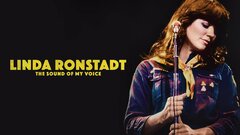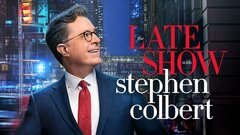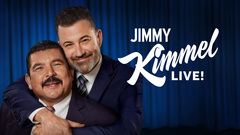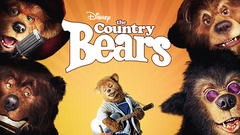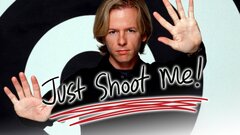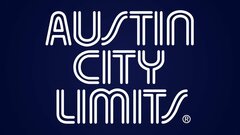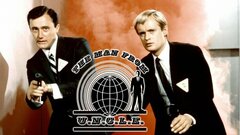As a founding member of the phenomenally successful rock act the Eagles, Don Henley was a guiding force behind its slew of chart-topping hits, providing vocals, lyrics and drums on songs like "Witchy Woman," "Best of My Love," "One of These Nights," "Hotel California" and "I Can't Tell You Why." Following the group's disintegration in 1980, he quickly established himself as a solo artist with a quartet of popular and critically acclaimed albums, including 1984's Building the Perfect Beast and 1989's The End of the Innocence. Henley's solo work reflected a thoughtfulness in regard to personal and social issues that was largely absent from his work with the Eagles, and which he echoed in his own life through involvement with various causes.
In 1994, he ended his long-standing feud with the Eagles and rejoined them for a string of extraordinarily well-received tours and albums. His commitment to authenticity and honesty, both as a solo artist and with the Eagles, made him one of rock-n-roll's most highly regarding singer-songwriters.
Born Donald Hugh Henley in Gilmer, TX on July 22, 1947, he was raised in the small East Texas town of Linden. Though the sleepy hamlet offered little by way of diversion for its young residents, Linden's geographical location placed it within broadcast range of some of the period's most groundbreaking radio broadcasts. From Louisiana, Henley could hear the top country and western acts of the 1950s on the legendary Louisiana Hayride in Shreveport or blues from WNOE in New Orleans. Rhythm and blues music came to him from WLAC in Nashville, and the sounds of early rock-n-roll wafted up from Mexico courtesy of Wolfman Jack's border radio program.
Henley formed his first rock band, The Four Speeds, while in high school. After meeting future Warner/Reprise Nashville president Jim Ed Norton at the University of North Texas in 1969, he formed Felicity, which later changed its name to Shiloh and headed west to Los Angeles. There, they recorded a debut album for Amos Records, which featured a country-rock duo called Longbranch Pennywhistle on its roster. Henley became friendly with the group, comprised of Detroit transplants Glenn Frey and J.D. Souther, and later joined Frey as part of Linda Ronstadt's touring band. After learning that Amos Records possessed neither the money nor facilities to promote their respective bands, Henley and Frey decided in 1971 to form their own group with two other members of Ronstadt's band, guitarist Bernie Leadon and bassist Randy Meisner. The quartet dubbed themselves the Eagles, and after landing a contract with Asylum Records, became one of the most successful bands in music history, with four Grammys, five chart-topping albums and over 100 million albums sold worldwide, including Greatest Hits 1971-1975 (1976), the best-selling album of all time in the United States.
Initially, all four members of the Eagles contributed song lyrics, but Henley and Frey soon came to dominate the group's sound and focus. Henley additionally took lead vocals on the majority of their biggest hits, including "Desperado," "Best of My Love" and their epic signature song, "Hotel California." This led to Leadon and Meisner's departure under less than ideal terms, though the addition of Don Felder, veteran guitarist Joe Walsh and Timothy B. Schmidt did little to ease growing schisms within the group. By 1980, Frey quit the group after an onstage tiff with Felder, and informed Henley of his departure by phone. Dismayed, Henley distanced himself from his former partner and began work on his career as a solo artist.
He experienced modest success with his solo debut, 1982's I Can't Stand Still, which generated a No. 3 single with "Dirty Laundry," a venomous, Grammy-nominated take on the uglier aspects of the news industry. After landing a Top 10 hit with "Leather and Lace," a duet with his then-girlfriend, Stevie Nicks, Henley established himself as a solo star with Building the Perfect Beast (1984), which broke the Top 20 on the album charts and generated four Top 40 singles, including the Top 5 single "The Boys of Summer," which netted Henley a Grammy for Best Male Rock Vocal Performance and five MTV Video Music Awards for the melancholy, French New Wave-tinged video by Jean-Baptiste Mondino.
The core themes of Beast - namely, the loss of values, both personal and political, in the face of age and modernization - would be repeated more implicitly on its follow-up, 1989's The End of the Innocence. It proved to be his most successful solo effort, with over three million copies sold during a three-year tenure on the charts, and four Top 50 singles, including the Top 10 title track, which brought Henley his second solo Grammy. He parlayed his good fortune into drawing attention to various political and environmental causes, including the Walden Woods Project, which he launched in 1990 to prevent the fabled area from development. In 1993, Henley co-founded the Caddo Lake Institute, which underwrote ecological research and education that, in turn, helped to protect wetlands like the Texas area that gave the institute its name, and where Henley spent much of his childhood.
Though his music was riding high atop the charts in the early 1990s, Henley's career itself was in dire straits due to a lengthy conflict with his label, Geffen Records. After attempting to get out of his contract with the label in 1993, the company filed a $30 million suit against Henley, citing that he owed them two more studio albums and a greatest-hits compilation. Henley counter-sued, alleging that Geffen had blackballed him from signing with other labels, including Sony and EMI, who had entered an agreement with Geffen to keep Henley from their stable until the completion of his Geffen contract. Subsequently, Henley released no solo material for nearly a decade, during which he came to terms with his old bandmates and reunited with the Eagles in 1994.
The resulting tour and album, 1994's Hell Freezes Over, was a colossal success, selling over five million copies in less than a year. Henley eventually settled his case with Geffen, which netted a substantial portion of the proceeds from the reunion album. In 1998, he and his bandmates, including former members Leadon, Meisner and Felder, performed together at their induction into the Rock and Roll Hall of Fame. During a break in the Eagles' seemingly endless round of "farewell" tours, Henley finally produced a new solo album, Inside Job for Warner Bros. The record broke the Top 10 on the Billboard album charts, and scored a No. 1 single on the Adult Contemporary charts with "Taking You Home." That same year, he co-founded the Recording Artists' Coalition, a group dedicated to protecting musicians' rights against music industry practices. He testified on the group's behalf before the U.S. Senate in 2001 and 2003.
The year 2007 saw the Eagles release Long Road Out of Eden, their first studio album since 1980's The Long Run. It again generated massive sales numbers and led to several national and world tours with the band. In interviews, he cited that the group was able to work together under a sort of "benevolent dictatorship" he maintained with Frey. In 2011, he began work on a solo album of country music covers while continuing to support a variety of causes, including passage of clean water legislation in California and environmental education programs in Texas.
By Paul Gaita






